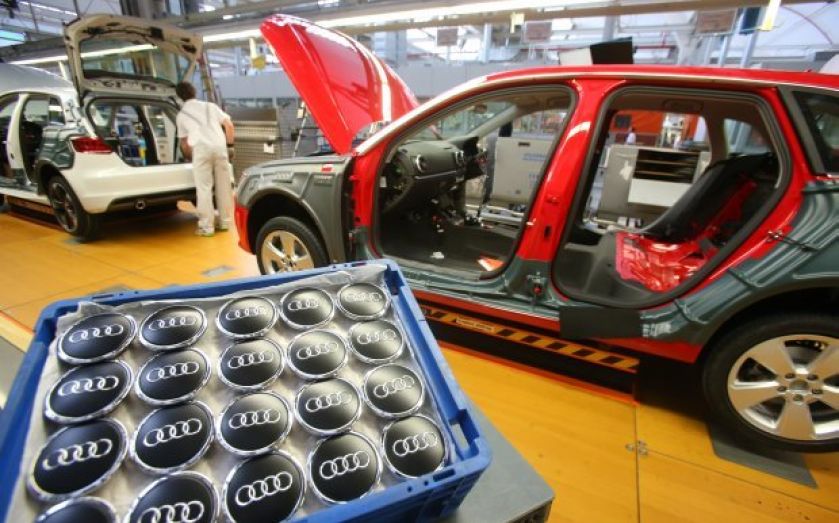German industrial output slides into reverse: Here’s what the analysts are saying

Germany's industrial output has slipped into reverse this May, as total output has fallen by 1.8 per cent in a single month.
The German Federal Statistical Office has also revised down last month's growth number, from tepid 0.2 growth to a 0.3 decline in output.
Analysts have been caught off guard by the decline. Economists had been expecting 0.3 per cent growth this May.
Evelyn Herrmann, European economist at BNP Paribas, sums up the data neatly: "Ouch". Industrial production in Germany now looks to have dropped for three consecutive months.
Construction was responsible for much of the downturn, falling by 4.9 per cent in May alone, the biggest decline of the major sectors. Manufacturing output dropped by 1.6 per cent in May, after a flat April.
Herrmann says that BNP Paribas had expected some weakness in the construction figures – and that component is worth 10 per cent of total industrial output – on the back of strong and weather-related first quarter performance, but that 4.9 per cent fall is more dramatic than they had foreseen.
And few economists had been expecting a decline in German manufacturing output. Recent Ifo surveys, purchasing managers' index data, and other sentiment data had been suggesting softening momentum, but not outright decline.
Christian Schulz, senior economist at Berenberg, notes that average second quarter output is now 1.5 per cent below the first quarter average. Which he says "points to a significantly weaker second quarter" for the Eurozone's flagship economy. BNP Paribas says that the risks to its second quarter German forecast of 0.4 per cent are now clearly skewed to the downside.
Looking ahead, Schulz says that some of the temporary downward calendar effects we've seen – such as this year's late Easter – will be reversed in the coming months.
Markets aren't taking to the news. Societe Generale's Kit Juckes says that the data has "given the euro a limp start to the week". Equities are also struggling to lift off with an otherwise limited economic calendar for investors to focus on today. European indices are universally in the red this morning.
